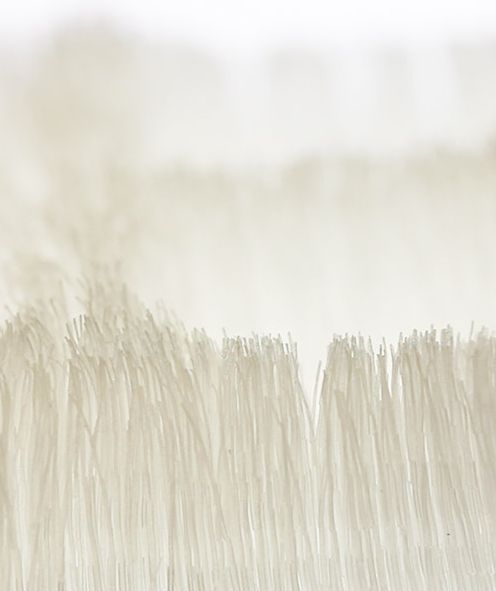Latest on 3D printed Synthetic hair.
Makeup brushes haven’t changed all that much over the last century. Sure, brands have figured out how to create synthetic fibers and played around with handle placement, but otherwise, there hasn’t been a whole lot of innovation, especially compared with the developments we’ve seen in skin care and cosmetics. But that could all change thanks to the creation and testing of 3D-printed hair by researchers at the Massachusetts Institute of Technology’s Tangible Media Group.
3D-printed hair isn’t technically a new innovation; MIT unveiled the first 3D-printed hair about a year ago. What’s new is that since then, the researchers have explored the exciting possibilities of the technology. In a recently released paper, the Tangible Media Group details the creation of its Cillia program, which allows for the 3D printing of both flat and curved surfaces covered in extremely fine, tightly packed, artificial hairs. What’s so cool is just how small they can make the hairs—as tiny as 50 microns across—giving them the ability to create highly dense hairy or furry surfaces that were previously only possible in nature. And because they can get the hair that small, it allows the company to control a whole bunch of things like the length, thickness, and density of each individual hair that’s printed.
